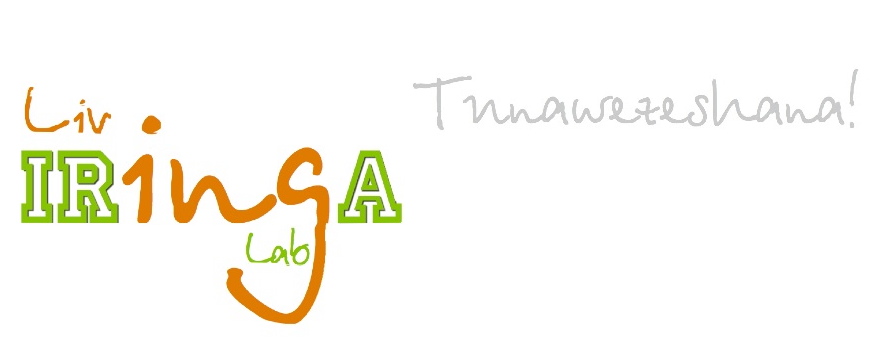Iringa Living Lab
organised a workshop on the 26th - 27th November in
order to enhance community networks in Iringa region. The objectives
were to create partnerships between the different stakeholders and to
create a platform for further cooperation, as well as come up with
new social innovations which will benefit the Iringa community. We
invited stakeholders from the government, the community, universities and different organisations.
The workshop was facilitated by
TANZICT. Jukka Siltanen and Kristiina Lähde provided us with participatory,
interactive and inspiring activities throughout the workshop.
The
Regional Commissioner Dr. Christine Ishengoma opened our workshop
officially. She stated that Iringa Living Lab is a very welcome
initiative in Iringa region. She pointed out that one strength of the
developed societies "is their ability to work together and
create synergy". She also emphasized the role of knowledge.
Iringa Living Lab is a step in the right direction, said Dr.
Ishengoma. She thinks the concept of Iringa Living Lab is exciting,
because Iringa Living Lab encourages different stakeholders to work
and come up with innovations, initiatives and solutions together
instead of competing against each others. Dr. Ishengoma assured us
that Iringa Living Lab has both her moral support and her active
participation.

After Regional Commissioner Dr. Ishengoma opened the
workshop officially, the concept of a living lab was introduced to
the participants. They also got to know what Iringa Living Lab has
been occupied with so far. Then all the stakeholders made an
organisation poster and we had "an
organisational fair" where the participants had the chance to get familiar with all the participating organisations and stakeholders. This was also the first opportunity to identify shared
roles, actions and future goals with other stakeholders and the first step
for creating partnerships.
Next
the participants were given a task to individually define a key
problem or issue in the Iringa community. Group
members shared these key issues and discussed them with other groups. At
the end of the first day the participants voted for those issues that need to be tackled right away. Four of them were selected for further discussion:
1)
How to create more new businesses and help small businesses grow?
2)
How to help people to find, access and create job opportunities?
3)
How to make science and technology more appealing in society?
4)
How to transform Iringa into a green city?
These key issues served as the starting point for the second day. The
participants decided which issue they wanted to focus on and four
groups were formed. In groups the participants did brainstorming on how to solve the issue in Iringa community.
Each
group came up with a number of ideas. The groups selected one of them and the next stage was to write an action plan: a very concrete plan about what the next steps would be during the next three months.
Group number 1 decided to work on the idea of entrepreneurship clubs in schools. The goal is to
help children become innovative and creative in a unique way, be
proactive, find their own strengths, and understand the possibility
to create their own work. Eventually the group
wants to include entrepreneurial education in the curriculum as a
part of all school subjects.
The second group decided to organise a participatory workshop on how to create
job opportunities in Iringa region. The workshop will provide the
forum for the discussion, but also help different stakeholders to
meet each others and find true commitment.
The science group decided to create a science and technology
club for primary and secondary schools in Iringa municipality in
order to make science and technology appealing and relevant in
everyday life. They are also planning to organise a science week for schools.
The
goal of the environmental group is to increase environmental awareness and
transform Iringa into a green city. They want to educate people, establish a plant nursery,
plant trees around the municipality, and form environmental youth
clubs. Transforming Iringa into a green city will
also make Iringa a beautiful and interesting tourist attraction and
in that way increase tourism in the region.
The
workshop serves as an excellent starting point for expanding Iringa Living
Lab. The facilitators collected feedback from the workshop participants and in overall it was very positive and encouraging. The coordinators are looking forward to hearing more from the
groups, but also from all the
other stakeholders in Iringa. As Dr. Ishengoma pointed out: it is
important that we do not work in isolation, but together.
The
workshop shows that there is need and interest for
this kind of a platform in Iringa. We were very pleased to hear the
views, thoughts and ideas of the participants and see how committed
they worked through the workshop.
Surely
everyone remembers the stories about the successful living labs in
Africa that we heard about in the workshop. Iringa Living Lab can
become one of them, but we need to make it
happen together!



























